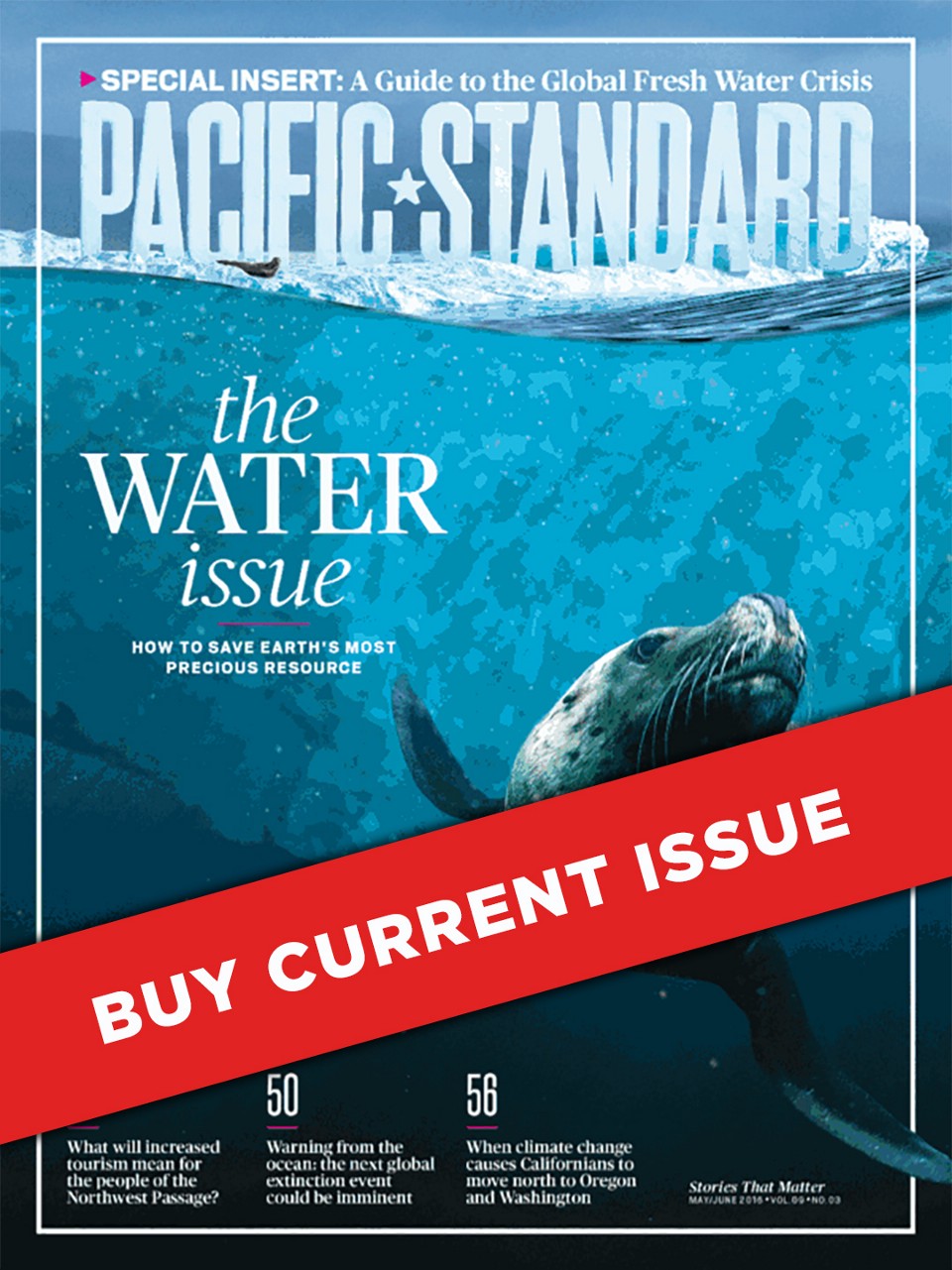Write to us at letters@psmag.com.
(Photo: Pacific Standard)
What Motivates Extreme Self-Sacrifice?
Harvey Whitehouse argues that suicide bombers are motivated not by belief, but by fusion with one’s group. He may be right. But the question about ISIS is not why its members are willing to die, but why they are willing to kill, to commit atrocities. The article has nothing to say about the question most of us are asking.
—Judith Andre
The Uphill Battle for Minorities in Trucking
A good-old-boy system is pervasive in the skilled trades. I was a heavy equipment operator in the 1970s, and, in northern Nevada, the landscape was essentially white operators. Race, ethnicity, and gender have always been an issue in this country; [they become] more glaring when the economy dips and recessions occur. Systemic racism and gender discrimination are not unique to trucking. Unfortunately, they’re just as prevalent in construction, mining, and other trades.
—Moses Ludel
The Environmental Impact of Long-Haul Trucking
While I agree with most of the concepts and ideas presented, I have two objections to voice. First, the implication that the drivers are somehow better today than they were 20 years ago: As anyone who spends a lot of time on the road will probably tell you, this is not true. This is what I have seen: less of what we always called “trucker’s courtesy” and less evidence of driver skill. From simple things like failure to signal lane changes, to more dangerous things like tailgating in heavy traffic, excessive speed under unsafe conditions, and hogging left lanes.
My second objection is in reference to the comment that wider acceptance of natural gas-powered engines is a long way off. I think that attitude vastly underestimates the speed at which changes can occur in a market, especially one that is as heavily driven by federal regulations and the competitive needs of a robust private sector looking for efficiency and profits. The greatest deterrent to adoption of any innovative and potentially expensive new technology is attitude, from the manufacturers to the corporate stakeholders to the operators and drivers.
Eventually, when they see the potential for their bottom lines, they will change and come around. It just takes time, but, to my thinking, the less time the better off we will be.
—John Zimmerman
The Last of the California Quail
The Audubon Society’s Nicholas Gonzalez (@NicoSGonzalez) wrote on Twitter: This @PacificStand piece on the disappearance of San Francisco’s California quail population is heartbreaking. Cat people must be stopped.
Twenty-Four Hours at a Truck Stop
I am a long-haul female trucker, driving about two years now, and wondered if you’ve considered covering trucking from a female driver’s perspective? We are truckers, just like our male counterparts, but the truck stops and the whole experience is experienced a bit differently by us.
—Wendy Lawson

This story first appeared in the May/June 2016 issue of Pacific Standard.
The Original Six: The Story of Hollywood’s Forgotten Feminist Crusaders
On Twitter, readers reported both praise and tears in response to Rachel Syme’s story on the Original Six, the six female directors who banded together in 1979 to challenge the male-run Hollywood machine. Maria Giese (@mariagiese), a film director who helped to instigate the current Equal Employment Opportunity Commission investigation into gender discrimination in the movie business, wrote on Twitter: You’ve never read this — and you should! If only I had known then what we know now….
In a Reddit AMA question-and-answer session with four members of the Original Six, reader wildpurplesage wrote: I am a woman trying to break into television writing. I was very moved by Syme’s piece, and specifically the story of those of you who have written screenplays that were ultimately never funded. Is there anything you might do differently if you were trying to break into the business today? Do you believe the sexism at the top is still nearly as insurmountable?
Nell Cox responded: I believe that, at the top, it is really tough, but there are a lot more outlets now. Now, there are many doors to wiggle through and do satisfying things — especially in TV. I used to make lists of every show and who to contact and then go contact them.
Looking back, I think I was writing those screenplays because I wanted passionately to make those films. I understood that on-speculation scripts didn’t get made often, but at least it was a way to meet people and be considered as a writer and/or director. Most of the fiction work I got for hire was from PBS. Being a government agency, they were less discriminatory.
A big plus is that people are more aware now. Women can use this awareness as a psychological weapon internally and externally. Keeping this awareness alive is a job for all of us.
Right now, I am turning those wonderful unproduced screenplays about girls and women into novels.
The Psychological Benefits of Choral Singing
On Facebook, Naomi Jeffery Peterson shared her missed opportunity for bonding with a choral group: To this day I regret missing choir auditions my freshman year due to tonsillitis — and being too naive to approach the director for a delay. It would have made a world of difference in my undergraduate experience.

||





